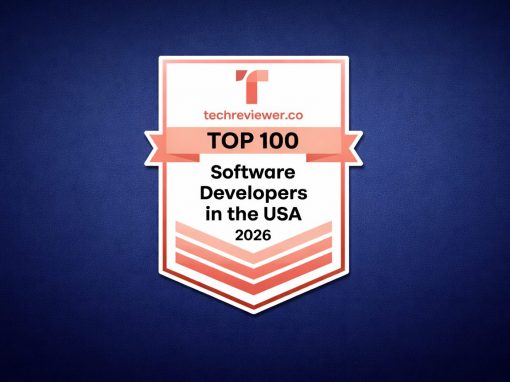Table of Contents
In this article, we will explore the many benefits of AI in healthcare, its applications, and the challenges that must be addressed.
What are the AI Applications in Healthcare?
There are numerous AI applications in healthcare such as data extraction, predictive algorithms, personalized medicine, and so many others. By using AI in healthcare, we are seeing the sector transform through enhanced efficiency, accuracy, and equity. From streamlining healthcare administration and managing public health to advancing medical research, training, diagnostics, and treatment planning, AI is no doubt making a significant impact in the medical industry.
AI in Healthcare Examples
Artificial intelligence is transforming healthcare with innovative solutions for accurate diagnosis, effective treatment, and efficient patient care. From data extraction to personalized medicine, read on to discover the top AI in healthcare examples.
Data extraction from text
Developers are creating AI algorithms that dissect and extract valuable information from providers’ notes, patient medical records, and research articles to help healthcare professionals make more informed decisions.
Practitioners are also able to analyze patient feedback, such as reviews and surveys, to identify areas for improvement in healthcare services and patient satisfaction.
Predictive algorithms
With historical and real-time data, predictive algorithms are applied to help identify trends and make projections related to patient care, such as disease progression, patient readmissions, or complications.
AI is also utilized to predict the risk of developing certain diseases based on genetic and environmental factors, enabling more personalized preventive measures.
Medical imaging
Artificial Intelligence has shown us how accurate it is at analyzing medical images, such as X-rays, MRIs, and CT scans, by highlighting early diagnosis and potential abnormalities. In recent orthodontic technology advancements, AI allows patients to even scan their mouths to send images to their doctors for remote help.
Medical imaging software development plays a crucial role in bringing these innovations to life—enabling the creation of intelligent systems that improve image quality, automate analysis, and streamline workflows for healthcare professionals.
Medical imaging AI software developers are at the forefront of these innovations, creating advanced tools that enhance diagnostic precision and support remote care solutions.
Additionally, AI orthodontics are being used to develop 3D models of organs and tissues to assist with surgical planning and training.
Telehealth
Thanks to AI-powered telehealth platforms, the gap between practitioners and patients is becoming significantly smaller, with specialist care becoming much more accessible for everyone.
For example, AI-powered chatbots are being used to triage patients and provide personalized recommendations for care, and telehealth in dentistry is also a great example of how AI can elevate the healthcare experience. AI is also being used to monitor patients remotely and alert healthcare professionals to any changes in their conditions.
Personalized medicine
AI is used to analyze patient-specific data and genetic information to identify the best treatment options for individuals. Through personalization, patient outcomes are improved, and treatment-related side effects are reduced.
With AI technology, practitioners can develop personalized nutrition plans based on their patients’ genetic and medical profiles.
Drug discovery
AI simplifies the drug discovery process by identifying possible drug targets and improving drug candidates. In the long run, this will save time and money in pharmaceutical research. DeepChem, DeepTox, and PotentialNet are just a few examples of the many AI tools used in drug discovery.
On top of this, AI is being used to predict the interaction of drugs with target proteins and receptors, which accelerates the drug development process.
Virtual health assistants
AI-powered chatbots and virtual assistants can provide patients with timely medical advice, appointment scheduling, and medication reminders, improving patient engagement and compliance with treatment plans.
Furthermore, AI is being used to develop virtual coaches that provide patients with personalized guidance on managing chronic conditions.

The Impact of AI in Healthcare
AI’s impact on healthcare has been profound as it offers innovative solutions, has helped enhance the quality of care, and is paving the way for a more efficient and proactive global healthcare system.
AI in the healthcare industry offers significant improvements and cost savings across various areas. On top of this, AI helps healthcare professionals streamline their workflows, clinical documentation, patient outreach, image analysis, medical device automation, and patient monitoring and allows practitioners to meet the increasing demand for healthcare services.
“As a clinical psychologist running a multi-location practice, I sought AI support when our waitlists grew unwieldy and documentation backlogs threatened our ability to serve neurodivergent clients efficiently. Traditional EMR systems weren’t cutting it for our spevialized assessment workflow.
I selected our AI partner based on their healthcare background and willingness to customize natural language processing specifically for psychological evaluations. They developed a system that could analyze assessment patterns while maintaining ethical boundaries around clinical judgment – our psychologists still make all diagnostic decisions.
The results transformed our practice – we’ve reduced report writing time by 35%, enabling us to eliminate waitlists completely. Our concierge assessment model now delivers comprehensive evaluations in half the previous timeframe, which matters tremendously for families who’ve often waited years for answers elsewhere.
In retrospect, I’d prioritize finding partners with deeper understanding of healthcare compliance from the start. Our initial implementation hit roadblocks around HIPAA that delayed rollout by months. I recommend business leaders in specialized fields draft detailed compliance requirements before approaching AI vendors – this saves significant time and prevents scope creep.”
Erika Frieze, Owner & CEO, Bridges of the Mind
5 Benefits of Artificial Intelligence (AI) in Healthcare
By applying AI to the healthcare sector, we are witnessing a new era of innovation and efficiency. As we watch the industry change, it’s exciting to think about the further improvements that will be made if we continue to harness AI’s potential. AI’s groundbreaking advancements are streamlining processes and saving lives.
But what are the benefits of AI in healthcare? In this section, we’ll explore the top 5 advantages of using AI in the medical industry, including improved diagnostics, streamlined administrative tasks, and more. These remarkable achievements drastically change how we approach patient care and shape a brighter future for healthcare worldwide.
From enhancing diagnosis and treatments to empowering healthcare professionals, here are the main benefits AI in healthcare offers:
Improved Efficiency of the Diagnostic Process
AI actively helps facilitate diagnostic processes, which increases the efficiency and accuracy of detecting diseases and conditions. A couple of ways we see this is through:
- AI-based medical imaging analysis: AI algorithms can precisely analyze medical images, which allows practitioners to provide even more accurate diagnoses, detection of diseases, and personal treatment plans.
- Predictive analytics and precision medicine: When combined with precision medicine, predictive analytics help practitioners identify patients with unique healthcare needs or less-common responses to treatment by analyzing vast amounts of data, such as genetic information, lifestyle factors, and medical history. With this information, healthcare professionals can tailor treatments specifically to the individual.
Streamlining Administrative Tasks
Streamlining administrative tasks is vital in healthcare to enhance efficiency and improve patient experiences. With AI, healthcare workers can enjoy reduced paperwork, minimized errors, optimized workflows, and better patient outcomes.
- Automating medical record management: With automated medical record management systems, patient data becomes digitized and organized. This allows healthcare professionals to access crucial patient information quickly and accurately.
- Intelligent appointment scheduling: Intelligent appointment scheduling helps optimize workflows by using AI algorithms to analyze patient needs, resource availability, and scheduling preferences, leading to a more seamless and patient-centric experience.
Empowering Healthcare Professionals
AI is empowering healthcare workers to get more done and streamline their workloads. By leveraging innovative AI technologies, healthcare professionals can focus more on direct patient care while remaining accurate and efficient.
- AI-enabled clinical decision support systems: AI-enabled clinical decision support systems provide real-time, data-driven insights to improve patient care and decision-making. After analyzing large amounts of data, such as medical records or lab results, they offer personalized treatment.
- Virtual assistants and chatbots: Virtual assistants and chatbots have increased in popularity, providing patients instant access to medical information, support, personalized health information, remote monitoring, virtual consultations, and medication management. With these at their fingertips, patient satisfaction and engagement have increased.
Improving Patient Engagement and Outcomes
By offering personalized care and real-time monitoring, AI can significantly enhance the patient’s experience and promote better health outcomes.
- AI-powered remote patient monitoring: AI-powered remote patient monitoring allows professionals to remotely track patients’ vital signs and health data which can lead to early detection and timely interventions. This technology improves patients’ quality of life and reduces the burden on healthcare facilities.
- Personalized health recommendations and behavior modification: AI continues to help by analyzing individual patient data to suggest tailored lifestyle changes and treatment options. This customization promotes patient adherence to treatment plans and encourages proactive self-care, ultimately improving health outcomes.
Enhancing Information Exchange
AI technology can help healthcare providers communicate and collaborate more efficiently. With this improvement, better coordination and care for patients happens.
- Improved collaboration and data sharing: With AI capabilities like data extraction from text and predictive algorithms, healthcare providers can extract relevant information from medical records and notes to identify high-risk patients. With this insight, they can intervene proactively and collaborate more efficiently between teams. Additionally, the Patient Centered Outcome Research Network (PCORNet) model uses AI to integrate data from multiple sources, enabling collaboration between healthcare providers and researchers. AI can also support multidisciplinary collaboration in cancer care by facilitating data and knowledge sharing across different clinical domains
- Combating cybercrime: Using natural language processing to organize data around cyber threats, AI can help identify potential cybercrime threats by scraping through various sources. Additionally, data mining techniques and algorithms can be applied to data to detect fraud patterns. By leveraging AI, healthcare providers can collaborate and share information with other healthcare teams to ensure more efficient and effective patient care and better outcomes.
“The introduction of AI copilots has reduced the time between deployments by 20% making it faster to have new launch features. For instance, with the introduction of a new clinical documentation feature, development from concept to deployment took two weeks due to the introduction of AI suggestions which had initially taken twice that.
It helped in increasing productivity, decreasing the app’s coding time for instance by as much as 30%. Bug fixes in an app and other tiresome repetitive coding are done by AI copilot hence reducing the burden of the developers who have to shift efforts on various designing activities of the product.”
– Gevorg Nazaryan, CEO of Docus
Ethical Considerations and Challenges
While the benefits are many, using artificial intelligence in healthcare and the medical industry has raised several ethical considerations and challenges. Some of the essential concerns include the protection of patient privacy, authorized consent, algorithmic biases, and whether or not AI will encompass the human emotions of empathy and sympathy.
Authorized Consent
Authorized consent is a significant concern of AI. All patients must understand and consent to using AI in their care, so safety and transparency are essential. With no exact data surrounding the need for authorized consent, it’s clear that the industry sees this challenge as a priority that needs to be addressed.
Algorithmic fairness and biases
AI poses challenges such as biases and fairness because the technology might unknowingly have existing biases in healthcare. For example, if the AI system is educated based on partial data, it could lead to unfair treatment. Machine bias in healthcare is also a concern for about 35% of the U.S. population.
Privacy and data protection
To ensure trust with patients, privacy-preserving machine learning and data protection are essential in the healthcare industry. Designers must prioritize the protection of sensitive patient data when creating AI systems. At the beginning of 2022, the healthcare sector experienced around 337 security breaches (more than 19 million records), which emphasizes the need for robust security measures and continuous improvements in privacy and data protection within the healthcare sector.
Empathy and sympathy
Empathy and sympathy are crucial in the healthcare industry, and we must integrate AI technology without compromising these essential qualities. Balancing the technological advances of AI with ethical principles is vital as the medical industry continues to change rapidly.
These ethical considerations and challenges of AI are top concerns for those in the healthcare industry. The National Library of Medicine even states, “Before integrating artificial intelligence with the healthcare system, practitioners and specialists should consider all four medical ethics principles, including autonomy, beneficence, nonmaleficence, and justice in all healthcare.”
Wrapping it up: Embracing AI in Healthcare
It’s clear that the benefits of AI in healthcare are numerous, and its potential to revolutionize the industry has already begun. We see it daily through improved diagnostic accuracy, collaboration, patient engagement, personalized treatments, and efficiency. AI has the power to transform patient care and healthcare systems across the globe.
While the future of AI in healthcare is exciting to think of, it’s important to note that it’s critical developers and those in the industry continue to address the ethical considerations and challenges surrounding the use of conversational AI in healthcare to ensure patient data is kept safe and private, patients understand and consent to the use of such technologies, and that biases are avoided where possible. To do this, stakeholders should work together to create systems that ensure transparency, trust, and compliance.
AI in healthcare also presents unique challenges that require ongoing research and collaboration. To move forward successfully with AI, medical professionals and software developers should keep up with the latest technological advancements and maintain an open dialogue concerning their ethical implications in healthcare to ensure the safety and protection of the public.
Ultimately, using AI in healthcare has the potential to make medical breakthroughs and to continue to improve systems and patient care. By focusing on ethical considerations and emphasizing the importance of patient protection and ethical research, AI can be used to benefit everyone in the medical industry.

About creating the Transforming Medical Care: The Top 5 Benefits of AI in Healthcare article:
This guide was authored by Lesley Comeau, Marketing Specialist, and reviewed by Nhat Bui, Technical Lead at Scopic.
Scopic provides quality and informative content, powered by our deep-rooted expertise in AI software development. Our team of content writers and experts have great knowledge in the latest software technologies, allowing them to break down even the most complex topics in the field. They also know how to tackle topics from a wide range of industries, capture their essence, and deliver valuable content across all digital platforms.





